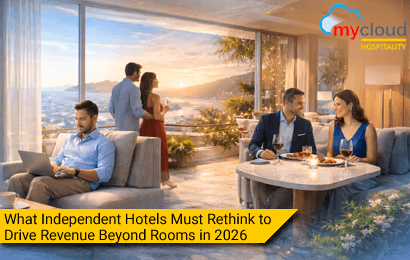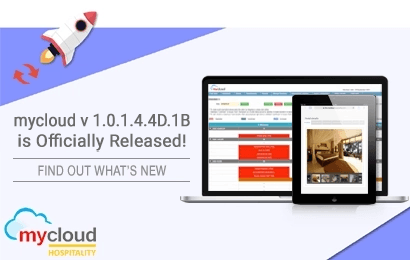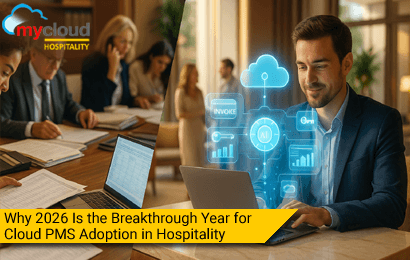In 2025, hotel guests no longer settle for long waits at reception or sluggish Wi-Fi connections. They expect lightning-fast check-ins, seamless digital experiences, and personalized service at every touchpoint. Yet many properties still rely on outdated systems that drag efficiency down. The result? Staff frustration, guest dissatisfaction, and missed revenue opportunities.
This blog unpacks how legacy technology slows hotels and how modern platforms like hotel PMS solutions and unified ecosystems are transforming service delivery. From integration hurdles to sustainability-driven automation, we’ll explore the shift from slow to seamless.
1. Legacy Systems and Integration Hurdles
Legacy infrastructure often seems reliable because it’s “familiar,” but in practice, it’s a daily bottleneck. Outdated hotel management systems, on-premise accounting software, and disconnected telephony setups cause downtime, slow reporting, and endless reconciliation headaches. Even worse, integrations with OTAs, payment gateways, and CRM tools often break—leading to double-bookings, manual fixes, and unhappy guests.
According to a Skift survey, nearly 54% of hoteliers cite technology integration as their biggest challenge in day-to-day operations. Staff spend hours troubleshooting instead of serving guests, eroding trust and wasting resources.
Some hotels that upgraded to modern PMS platforms eliminated double-booking issues and reduced manual reconciliation efforts—freeing staff to focus on guest experiences instead of system glitches.
Note: Solving integration challenges is the first step toward creating a hotel operation that runs smoothly and efficiently.”
2. Bandwidth Bottlenecks & IoT Overload
Hotels worldwide are embracing IoT-powered experiences—from smart TVs to connected lighting and keyless entry. But without strong IT infrastructure, these innovations quickly backfire. Smart TVs and personal streaming devices can hog bandwidth, slowing down Wi-Fi for business travelers who rely on video calls and cloud-based tools.
In fact, 74% of travelers rank fast, reliable Wi-Fi as the most important in-room amenity (Statista, 2024). A slow connection can make or break a guest’s stay.
3. Outdated Guest-Facing Tech
Nothing frustrates a weary traveler more than standing at a front desk while the check-in screen freezes. Or waiting for room service only to find that the POS order never reached the kitchen. Outdated guest-facing tools—whether at reception, F&B, or maintenance—create unnecessary delays.
Today’s travelers are accustomed to Netflix-style personalization, instant messaging, and one-click transactions. Hotels that fail to deliver this level of convenience fall behind. Research by PwC shows that 82% of guests prefer hotels with digital, self-service options.
Note: Upgrading guest-facing tools not only reduces waiting times but also ensures smoother service across all departments.
4. Push for Invisible, Seamless Technology
The best technology doesn’t shout—it works quietly in the background. Invisible systems handle processes like frictionless in-room dining orders, automated housekeeping task assignments, and real-time revenue adjustments without disrupting guest interactions.
More properties are moving towards unified platforms that eliminate clunky integrations. With a single ecosystem, hotels reduce errors, accelerate workflows, and create smoother guest journeys.
Note: When technology works seamlessly in the background, it creates visible improvements in guest satisfaction and staff productivity
5. Microservices & Real-Time AI for Scalability
A modern best hotel management software isn’t built as a rigid monolith. It’s designed with microservices architecture, allowing hotels to scale specific features—like booking engines or reporting—without system downtime. This modularity ensures faster uptime, agility, and future-proof operations.
The addition of AI takes scalability to new heights. Real-time demand forecasting and dynamic pricing empower hotels to respond instantly to market changes. Studies show hotels using AI-driven forecasting see a 20–25% uplift in RevPAR (Hotel Tech Report, 2024).
Imagine a long weekend surge. Instead of managers scrambling with spreadsheets, AI-driven tools automatically adjust rates, allocate staff shifts, and optimize room packages.
Note: Scalable, modular systems future-proof hotel operations by keeping them agile and ready for market shifts.
6. Cybersecurity and Data Privacy Challenges
With greater digitization comes greater risk. Hotels collect sensitive guest data—from passport scans to payment details—and are prime targets for cybercriminals. A unified platform makes operations efficient but also raises the stakes of a potential breach.
According to CERT-IN, over 30% of Indian hotels reported cybersecurity incidents between 2022–2024. The damage extends beyond financial penalties; it shatters guest trust.
mycloud PMS integrates multi-layered security: encrypted transactions, automatic updates, and role-based access control. Hotels should adopt these practices to safeguard guest data and maintain compliance. For them, security became more than protection—it became a driver of efficiency and reputation.
Note: Strong security is now a foundation for long-term guest trust and sustainable business growth.
7. Staff Training with AI Tools
Even the best tech falters if staff aren’t trained well. Traditional onboarding is slow, inconsistent, and resource-heavy. Skill gaps directly impact guest service and increase employee frustration.
AI-powered training tools are changing this narrative. Virtual simulations can coach staff on handling guest complaints, upselling opportunities, or front-desk interactions in real time. This accelerates training while standardizing service delivery.
Hotels using AI-driven training platforms have seen a 30% reduction in onboarding time (Cornell Hospitality Research, 2024).
Note: Empowered, well-trained staff directly translate to higher guest satisfaction and stronger brand loyalty.
8. Sustainability Tech — Efficiency with Purpose
Efficiency isn’t just about speed; it’s about purpose. Smart sustainability technology, from HVAC automation to water-use sensors, reduces waste while cutting costs. Guests increasingly seek eco-conscious hotels, and failing to align with these values risks losing bookings.
Hotels adopting green technology report 15–20% reductions in utility costs while improving guest approval scores (Hotel Management Network, 2024). Hotels, automate lighting and smart energy tracking became selling points for eco-conscious travelers, boosting both savings and reputation.
Note: Sustainability-driven efficiency is no longer optional—it’s fast becoming a core expectation for travelers.
Final Takeaway
Legacy systems slow down service, frustrate staff, and disappoint guests. But modern platforms transform operations into a seamless, invisible flow—where data integrates in real time, AI forecasts demand, staff train faster, and sustainability becomes a competitive advantage.
The future belongs to hotels that embrace scalable, secure, and guest-focused technology. Ready to experience the difference? Schedule a demo or start your 30-day free trial today.
FAQs: Because Every Hotelier Has Questions Before Taking the Next Tech Leap
1. How do I know if my hotel needs a new PMS?
If your staff spends more time fixing errors than serving guests, or if double-bookings and reporting delays are common, it’s time to upgrade.
2. Can small boutique hotels benefit from advanced systems?
Absolutely. Cloud-based hotel management systems scale easily, making them affordable and impactful for boutique hotels as well as chains.
3. Is cybersecurity really a concern for independent hotels?
Yes. Even small properties handle sensitive guest data. Cloud PMS platforms with encryption and compliance protect both your operations and your reputation.
4. Will AI replace hotel staff?
No. AI assists by forecasting demand, automating tasks, and speeding up training, but the human touch remains irreplaceable in hospitality.
5. How does sustainability tech impact profitability?
Smart automation in HVAC, lighting, and water management cuts costs while appealing to eco-conscious travelers—boosting both margins and guest loyalty.










